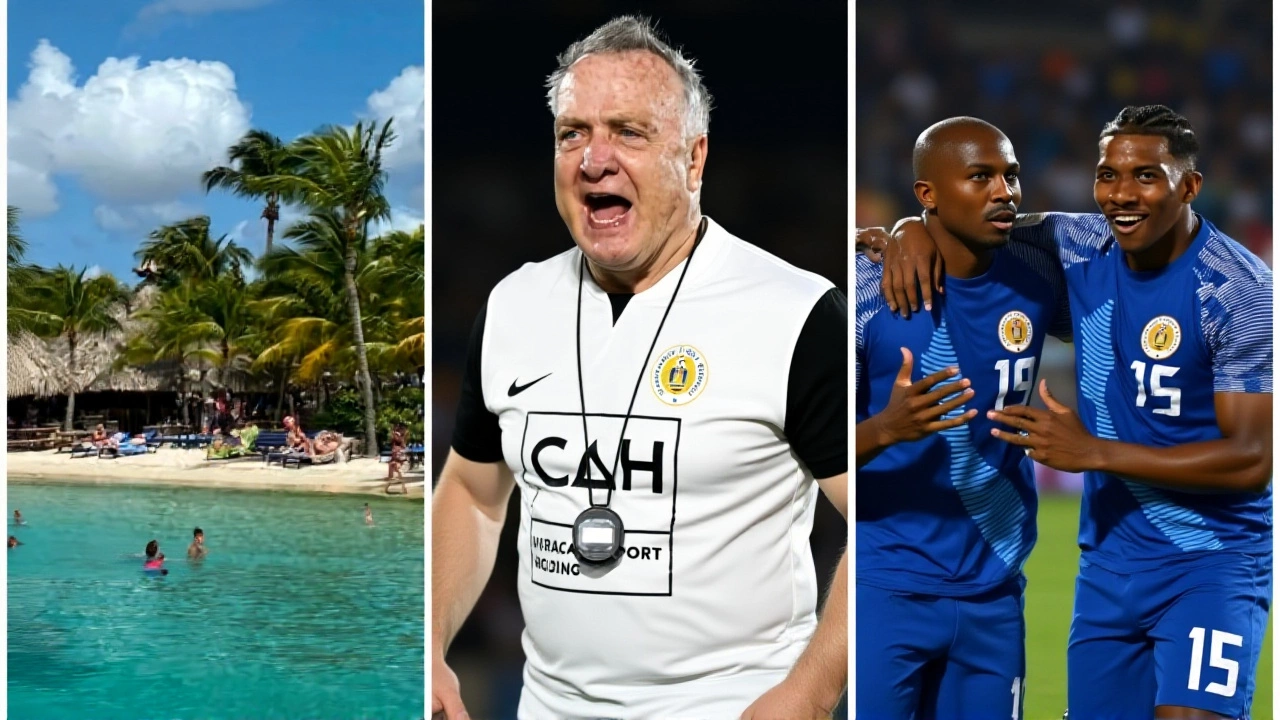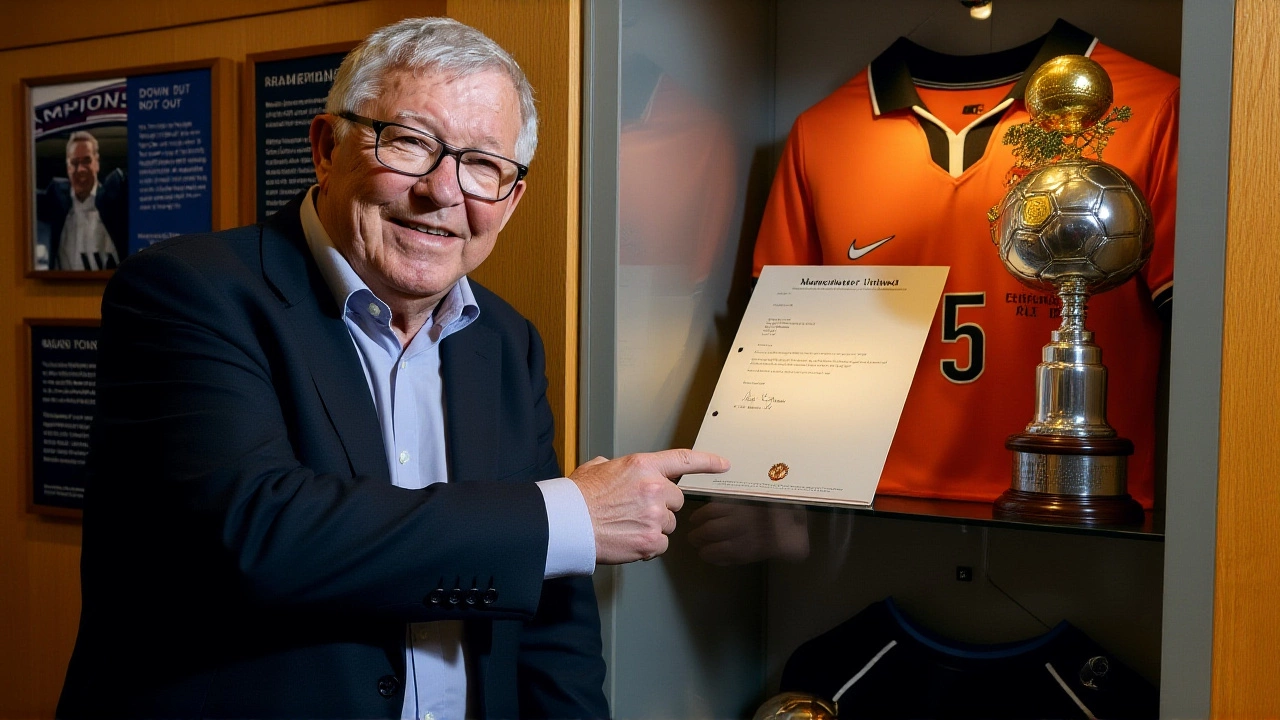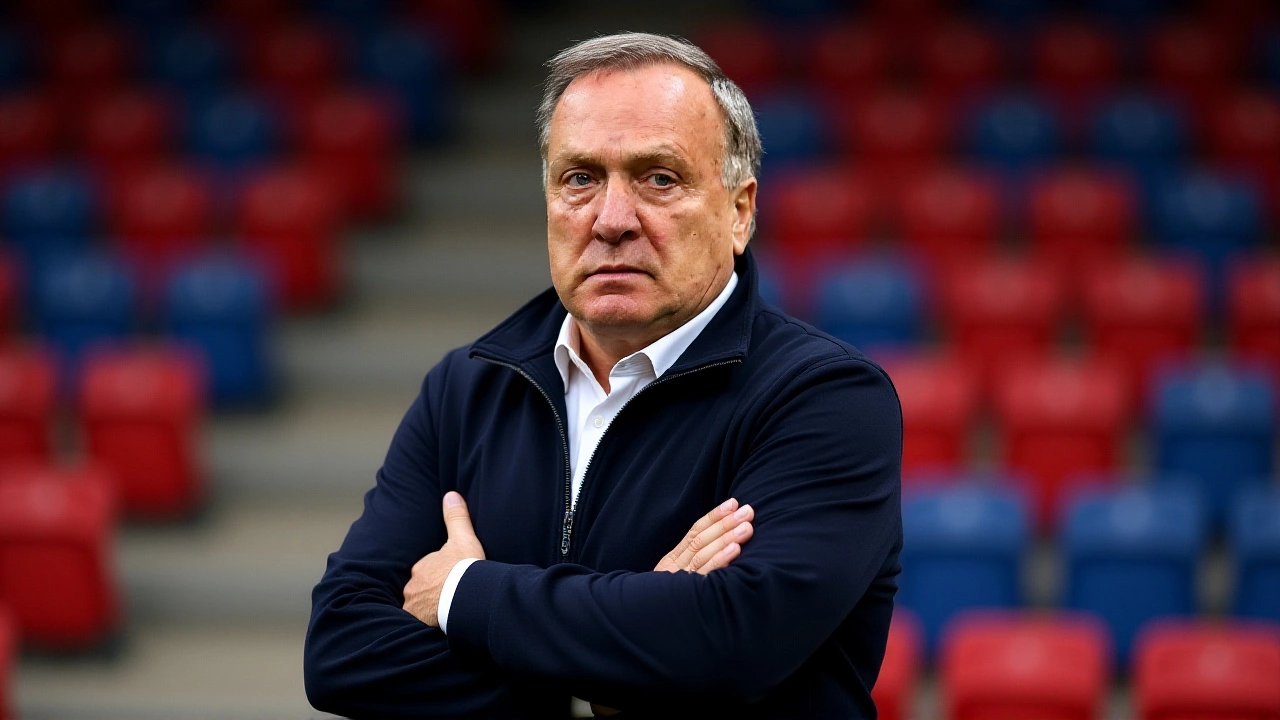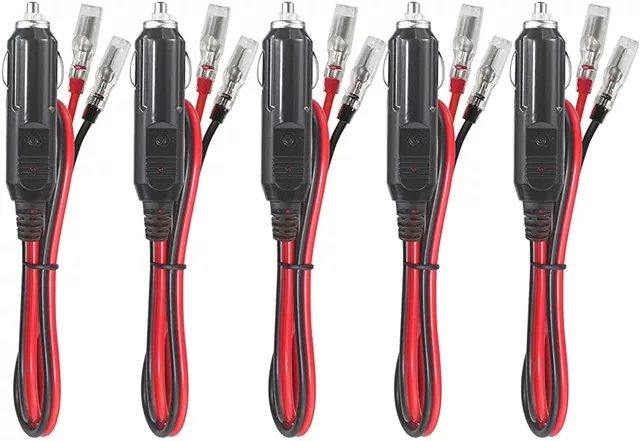When Dick Advocaat walked away from the Netherlands national football team in early 2016, few expected him to come back — let alone after a brief, turbulent stint at Fenerbahce Aşı Spor Kulübü in Istanbul. But that’s exactly what happened. After Danny Blind was sacked in March 2017 following a string of poor qualifying results for the 2018 FIFA World CupRussia, the Dutch football federation made a surprising call: they brought Advocaat back. It wasn’t just a managerial shuffle — it was a reset. The team was in crisis, and Advocaat, the pragmatic veteran with a reputation for steadying ships, was the only one many trusted to do it.
Advocaat’s Two-Tenure Tango
Advocaat’s first spell as Netherlands head coach ended in January 2016, when he abruptly resigned to take over at Fenerbahce, a club with deep pockets and even deeper expectations. His departure left a vacuum. Blind, a former Dutch international and captain, was handed the reins — but his tenure lasted barely a year. After losses to Sweden and Bulgaria in World Cup qualifying, the Dutch public lost patience. Fans chanted for change. Media outlets called it a "national embarrassment." And so, in March 2017, Blind was fired. Enter Advocaat again — this time with a mission: get the team to Russia.What made the return even more unusual was the presence of Ruud Gullit. The 1988 European Championship-winning captain and former Chelsea manager had already joined Blind’s staff as a technical advisor. When Advocaat returned, Gullit stayed — a rare show of continuity in a volatile environment. "Blind asked me if I was interested," Gullit later told Monde Football. "And gave me the feeling that I can add value to the staff and the team. But at the end of the day, the ultimate responsibility rests with the head coach." That humility, paired with his star power, helped stabilize a fractured dressing room.
Sparta Rotterdam’s Quiet Turnover
While the national team was in chaos, another Dutch club was undergoing its own quiet revolution. Sparta Rotterdam, founded in 1888 and one of the Netherlands’ oldest professional clubs, was navigating leadership changes behind closed doors. Their story doesn’t involve Advocaat — but it’s just as telling.Leo Beenhakker, the 74-year-old Dutch coaching legend who once managed Frank Rijkaard and Marco van Basten, first joined Sparta as technical director in December 2013. He stepped down in June 2015, citing personal reasons. But he didn’t disappear. In November 2017, with the club struggling in the Eredivisie and searching for direction, Beenhakker returned — this time as a voluntary advisor. His presence was symbolic. A link to Sparta’s storied past. A calming voice.
Then, in March 2018, the club appointed Henk van Stee as the new technical director. Beenhakker, ever the gentleman, quietly exited — announcing his final retirement from football. "I’ve given everything I could," he told local reporters. "Now it’s time for the next generation." Van Stee, a former youth academy director with experience at Feyenoord and FC Utrecht, inherited a team hovering just above relegation. His mandate? Modernize the structure, rebuild youth development, and restore pride.

Why This Matters Beyond the Headlines
The contrast between these two stories reveals something deeper about Dutch football. At the national level, emotion and legacy drive decisions. Advocaat’s return wasn’t just about tactics — it was about restoring confidence in a team that had lost its way. At Sparta Rotterdam, it was about patience and structure. No flashy names. No dramatic press conferences. Just steady, methodical change.Advocaat’s career is a masterclass in adaptability: Rangers FC, PSV Eindhoven, Zenit Saint Petersburg, Fenerbahce — he’s rebuilt clubs across Europe. But his two stints with the Netherlands national team stand out. He’s one of the few managers to return to the role after a departure — and succeed. Under his second tenure, the Dutch qualified for the 2018 World Cup, finishing second in their group behind Spain. They lost 2-0 to Argentina in the Round of 16, but the team played with cohesion. That was Advocaat’s signature: discipline over flair.
Sparta Rotterdam, meanwhile, remains a club in transition. After decades of financial instability and managerial turnover, Van Stee’s appointment marked a shift toward professionalism. The club’s historic home, Het Kasteel, still holds 11,000 fans on matchdays — but the vision now is bigger: a new training complex, improved scouting networks, and a youth academy that can compete with Ajax and PSV.

What’s Next?
Advocaat, now 76, has officially retired from coaching since 2021. But his legacy lingers. The Netherlands’ 2022 World Cup campaign — though ultimately disappointing — still bore traces of his influence: structured transitions, disciplined fullbacks, and a reliance on experienced leaders. Meanwhile, Sparta Rotterdam, under Van Stee’s leadership, finished 11th in the 2023-24 Eredivisie season — their best finish in five years. Youth players like 19-year-old midfielder Jurre van der Veen are now breaking through, products of the system Van Stee helped build.The real story here isn’t about who coached whom. It’s about how Dutch football balances tradition with reinvention — sometimes through bold, emotional returns, and other times through quiet, unsung leadership.
Frequently Asked Questions
Why did Dick Advocaat return to coach the Netherlands national team in 2017?
Advocaat returned after Danny Blind was sacked following poor World Cup qualifying results, including losses to Sweden and Bulgaria. The Dutch FA needed a steady hand with international experience, and Advocaat had previously led the team to Euro 2008 and the 2010 World Cup semifinals. His reputation for organization and managing veteran squads made him the logical choice to stabilize the team ahead of the 2018 World Cup.
Did Dick Advocaat ever manage Sparta Rotterdam?
No, there is no record of Dick Advocaat ever holding a coaching or technical role at Sparta Rotterdam. While the club experienced leadership changes between 2013 and 2018 — notably with Leo Beenhakker and later Henk van Stee — Advocaat’s career during that period focused on the Netherlands national team and earlier stints at Fenerbahce and other clubs. His name does not appear in any official Sparta Rotterdam announcements from that era.
What role did Ruud Gullit play in the Netherlands’ 2018 World Cup campaign?
Ruud Gullit served as a technical advisor to both Danny Blind and later Dick Advocaat, offering insights on tactics and player dynamics. Though he had no formal coaching title, his presence was influential — especially with veteran players who respected his 1988 European Championship legacy. He was praised for bridging generational gaps in the squad and helping maintain morale during a turbulent qualifying campaign.
How did Sparta Rotterdam’s leadership changes affect their performance?
After Leo Beenhakker’s departure and Henk van Stee’s appointment in March 2018, Sparta Rotterdam began a slow rebuild focused on youth development and administrative stability. The club’s 11th-place finish in the 2023-24 season marked their best result in five years, and their academy produced three Eredivisie debutants in 2023 — a sign the long-term strategy is working. Financial transparency and reduced debt also improved under Van Stee’s leadership.
What is the significance of Het Kasteel for Sparta Rotterdam?
Het Kasteel is Sparta Rotterdam’s historic home since 1916 and one of the oldest continuously used football stadiums in the Netherlands. With a capacity of 11,000, it’s known for its intimate atmosphere and passionate local support. Though the club has long sought to expand or relocate, financial constraints have kept them at Het Kasteel — making it a symbol of resilience. Plans for modernization are underway, but the stadium remains central to the club’s identity.
How does Dick Advocaat’s legacy compare to other Dutch managers like Louis van Gaal?
Advocaat is seen as the pragmatist — focused on structure, discipline, and experience — while Van Gaal is the tactician, known for innovation and positional play. Advocaat’s teams often underperformed in terms of style but consistently reached tournaments. He led the Netherlands to the 2010 World Cup semifinals and 2018 World Cup, while Van Gaal took them to the 2014 semifinals and won Euro 2000 with the U21s. Both were successful, but Advocaat’s strength was stabilizing troubled teams — a skill that made him invaluable in crisis moments.






